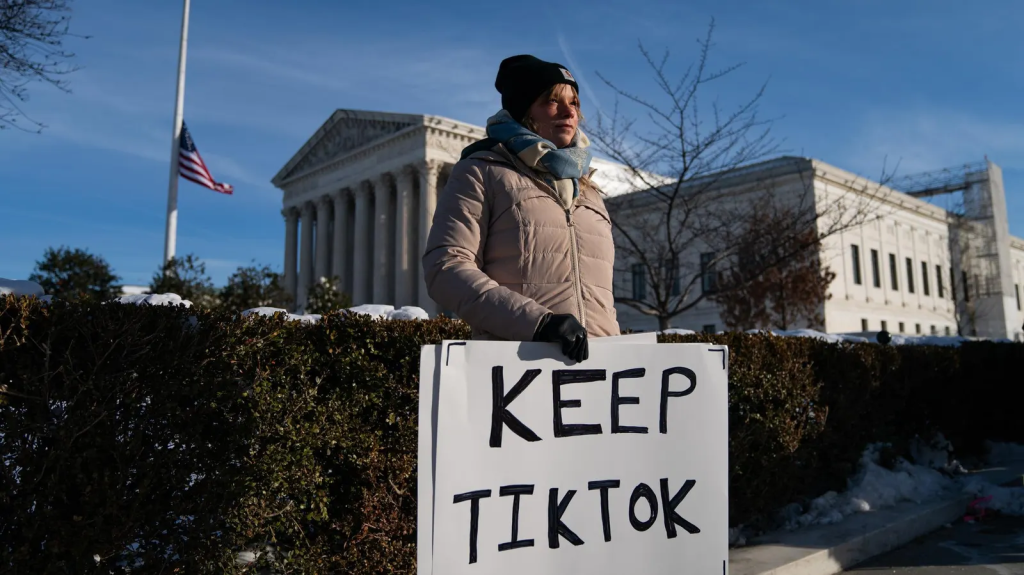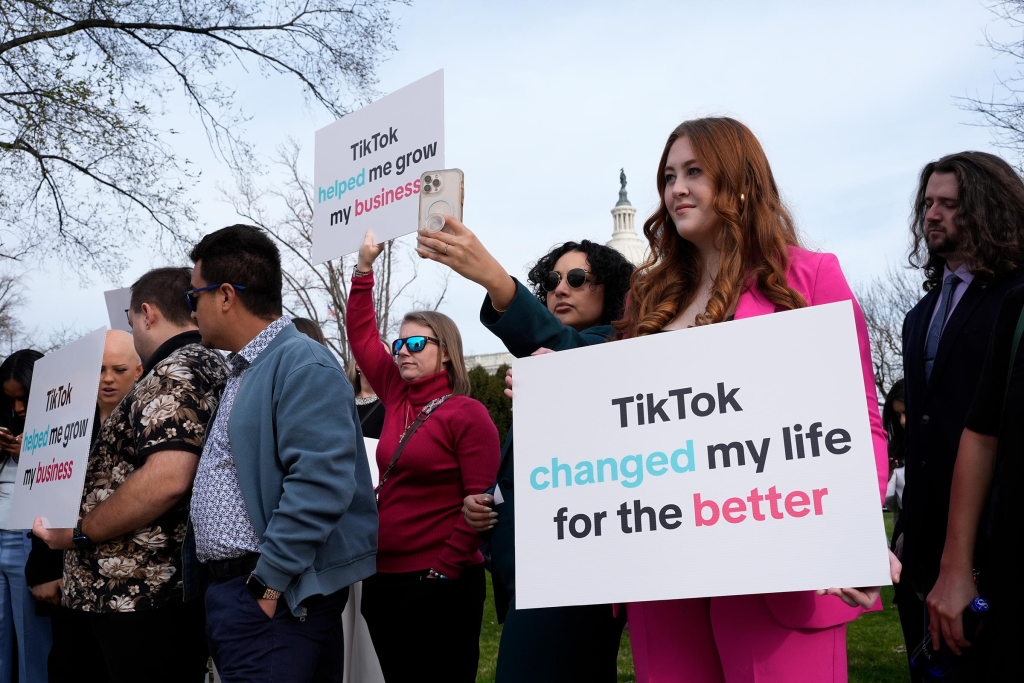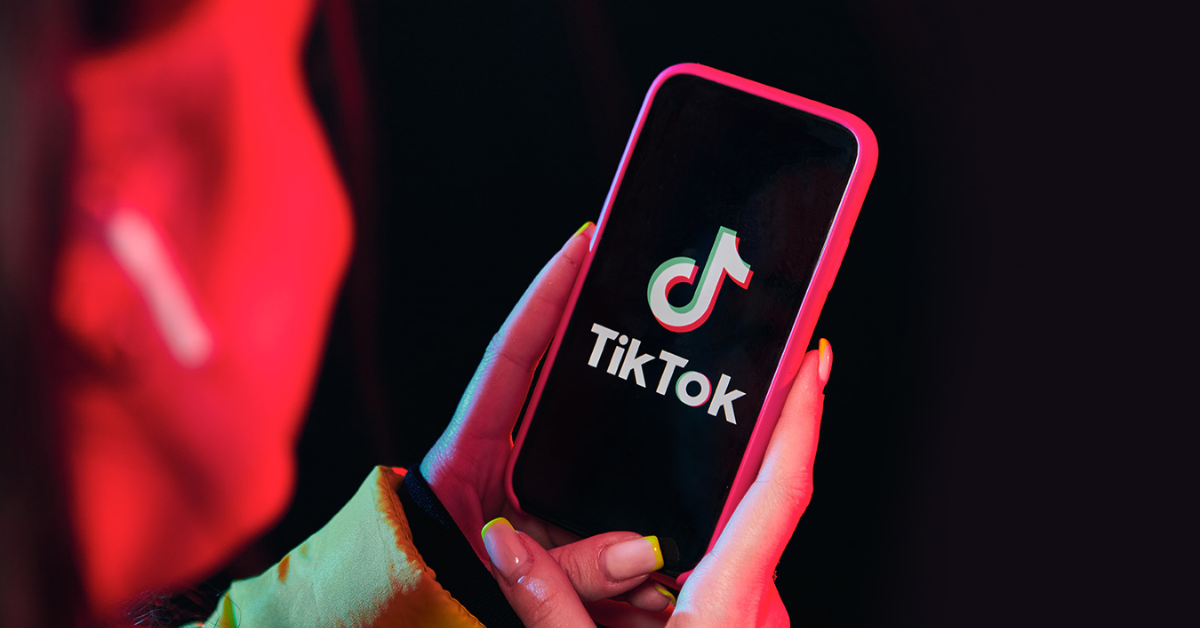The United States Supreme Court is making waves in the world of social media as it prepares to issue a decision that could impact millions of users nationwide. On January 10, 2025, the Supreme Court heard arguments concerning the future of the popular social media app TikTok.
This case has sparked intense debate, as it revolves around concerns over national security and the app’s ties to its Chinese parent company, ByteDance.
TikTok has exploded in popularity over the past few years, particularly among younger audiences. With millions of daily active users across the country, it has become one of the most influential social platforms in the U.S. However, concerns have been raised about the app’s data collection practices.
Specifically, U.S. officials are worried that the Chinese government could gain access to American users’ data through TikTok, potentially using it for espionage or other security risks.
This issue has led to ongoing efforts in Congress to either force TikTok to divest its U.S. operations or ban the app outright. The Supreme Court’s recent hearing signals that the court is leaning towards upholding a national security law that would require TikTok to either sell its operations to a U.S. company or face a complete ban. If the court rules in favor of this move, the ban could be implemented as early as January 19, 2025.
The potential ban of TikTok has sparked significant reactions, especially among its dedicated user base. Many people across Central Illinois, including TikTok user Savannah Andrews, expressed their disappointment about the possibility of the app being banned. “It’s really disappointing that it’s going to be banned potentially,” Andrews said.
A daily user of TikTok, she explains that the app’s algorithm is better suited to her interests compared to other platforms. “Their algorithm compared to other people for other apps, algorithms sometimes fit better, and I end up getting a lot more content that I’m interested in rather than some other apps and platforms, where the algorithm isn’t as fine-tuned to my interests,” she said.
Despite these concerns, others, like Scout Zander, believe that a potential TikTok ban wouldn’t be the end of the world. “It absolutely can be replaced by anything else,” Zander remarked. “All TikTok was just the real part of scrolling.
They’ve added that feature to every other app, such as Instagram or Twitter, YouTube, stuff like that.” Zander and others who share this viewpoint believe that if TikTok is banned, users will migrate to other platforms that offer similar features, such as Instagram Reels or YouTube Shorts.

The Supreme Court’s decision to potentially ban TikTok is part of a broader discussion about national security and the role of foreign-owned technology companies operating in the U.S.
There is growing concern about the amount of data that is collected by social media platforms, particularly those tied to foreign governments. While some argue that banning TikTok could set a dangerous precedent for internet censorship, others believe that the threat posed by the app outweighs the potential downsides.
If the Supreme Court upholds the national security law and implements the ban, it could have serious consequences for TikTok’s operations in the U.S. Users would no longer be able to access the app, and its presence in app stores could be completely removed.
This would also mean that any updates to the app would be blocked, leaving users unable to enjoy new features or improvements. For the millions of people who use TikTok to stay connected with friends, share content, or promote their businesses, the impact could be profound.
But this is not just a matter of social media platforms competing for attention; it’s also a broader issue of government regulation and control. The national security law at the heart of this case reflects ongoing concerns about data privacy, particularly in the context of global technology companies.
As the U.S. government continues to grapple with these issues, the outcome of the Supreme Court case could set important precedents for how the country regulates foreign tech companies in the future.
This case has been watched closely not only by U.S. officials and lawmakers but also by the global tech industry. If the Supreme Court decides to ban TikTok, it could have ripple effects across the entire social media landscape.
Companies like Facebook, Instagram, and Twitter may face increased scrutiny regarding their data practices as governments around the world push for greater control over the digital space.

Even though the case has yet to be fully decided, many are already predicting what the future of social media will look like if TikTok is banned. Some believe that the void left by TikTok could lead to the rise of new, innovative platforms that offer similar experiences. Others fear that the loss of TikTok will diminish the diversity of content available on social media as platforms like Instagram and Facebook become even more dominant.
Regardless of the outcome, the Supreme Court’s decision will likely have far-reaching consequences. Whether or not TikTok is banned in the U.S., the case has brought attention to important issues about data privacy, security, and the role of foreign companies in the tech industry.
For TikTok’s millions of users, the next few weeks could be crucial in determining the future of the app and how they continue to interact with social media.
The situation remains fluid, and there is still uncertainty about what will happen next. Some believe that legal challenges or negotiations could delay the implementation of the ban, while others feel that it is inevitable. One thing is certain: the Supreme Court’s decision on TikTok will be a defining moment in the ongoing debate about privacy, security, and the power of big tech companies.
Disclaimer: This article has been meticulously fact-checked by our team to ensure accuracy and uphold transparency. We strive to deliver trustworthy and dependable content to our readers.







Leave a Comment